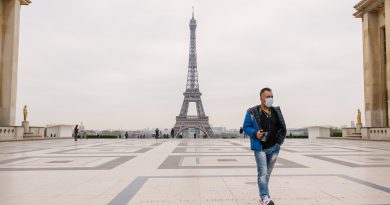The Post Modern Autocrat; The Resurgence of the Dictator in the 21st Century
Gabrielle Goldworm
Staff Writer
Examine history with enough care, and one starts to see patterns. The communist and fascist dictators that once seemed only to exist in our history books are increasing in number all over the globe, as reports come in of landslide victories in supposedly democratic elections, vicious crackdowns on media freedom and individual rights, and the power-centric restructuring of laws and constitutions. However, these officials are hardly the flashy, Mussolini-esq autocrats of old. They provide modern takes on the classic strongman and public relations tactics, garnering support amongst large, intensely loyal bases, even as the international community looks on with concern. An in-depth look at some of these leaders reveals what it takes to be a successful autocrat in the year 2018 – how to get power, how to stay in power, and what the rising popularity of this type of leader might mean for the future of foreign relations.
Rodrigo Duterte:
Official Title: President of the Philippines
Time in Power: Mayor of Davao City for seven nonconsecutive terms (22 years), president since 2016
Rodrigo Duterte has been a polarizing figure on the international scene since his 2016 run exposed the world to his controversial past as the mayor of Davao City. Known best for his brutally hardline stance against drug dealers, Duterte has been linked to death squads accused of thousands of extrajudicial killings for decades. In 2015, Human Rights Watch released a report estimating that more than 1000 people had died in Davao during Duterte’s leadership and urged the government to investigate. Despite this and other controversies in the media, Duterte would successfully run for president a year later.
Duterte’s appeal becomes clear upon examining the nature of the world of Philippine politics. While boasting one of the fastest growth rates in the world, the Philippines still suffered high corruption rates and poor infrastructure. The government resembles an oligarchy, with political dynasties holding almost all of the power. The resulting discontent with existing democratic structures – what the Washington Post terms “democratic fatigue” – ushered in a nostalgia for the days of the political strongman.
Duterte had deep connections prior to entering the world of politics; his father was the governor of unified Davao and a member of former president Ferdinand Marcos’ cabinet, CNN reports. As a firebrand populist who mocked the liberal elite, Duterte didn’t need to capitalize on economic downturn or waves of “dangerous immigrants,” but promised to tear down the old frustrating order. He presented himself as someone who would get things done, without political savvy and despite institutional red tape. In a 2015 interview on a Philippine weekly talk show, he famously promised to execute 100,000 criminals and dump their bodies into Manila Bay. In March 2018, the International Criminal Court began to investigate Duterte for crimes against humanity related to his alleged role in the thousands of deaths attributed to his brutal war on drugs. Duterte responded by withdrawing his country’s ICC membership.
Despite this, his approval ratings have remained high, with a significant drop in popularity arising only recently, after the President made some “blasphemous” comments about God, which caused a stir in the majority Catholic nation. Sources including Bloomberg speculate that this could mark the end of the honeymoon period of Duterte’s presidency, but popular opinion has yet to turn against him. According to Forbes, he still boasts a reported 88% approval rating and a trust rating of 87%. (398)
Xi Jinping
Official Title: State Chairman of the People’s Republic of China, General Secretary of the Communist Party, Chairman of the Central Military Commission
Time in Power: Vice President from 2008-2012, State Chairman (President) of the PRC since 2012. Involved heavily in Chinese politics since 1973
Autocrats are not new to the PRC. Although the Communist Party of China is officially “united in their condemnation of the Cultural Revolution” according to ABC, the country has never fully forgotten or abhorred its former leader, Mao Zedong. President Xi Jinping, in particular, has not shied away from the lessons Mao left behind for those hoping to build a similar cult of personality.
After the Cultural Revolution and the downfall of his father Xi Zhongxun, one of the Communist Party’s founding fathers as well as a vice premier, Xi Jinping embraced communist ideals and quickly rose through the ranks of the party. In his 6 years as official head of the PRC, he has quickly become China’s most powerful leader in decades, consolidating the powers of his office to give him unparalleled control of China’s military, economy, and state-run media. While his crackdown on corruption and dissenters have been met with concern from international human rights groups, his supporters have praised both these efforts and his hardline stance on the island of Taiwan and its Chinese sovereignty.
On top of all that, his image as the “Core Leader” of the party able to both care for and lead his people forward in pursuit of a new “Chinese Dream” has proved to be a potent cocktail of charisma that even numerous alleged human rights abuses cannot water down. Party efforts to limit his appeal have been a series of successive failures.
While it may be debatable if President Xi, a longtime party loyalist, truly fits the textbook definition of an autocrat, his tactics echo those of previous autocrats but with modern flair. His ideas, credited in the constitution as “Xi Jinping Thought” (an honor before reserved for Mao) emphasize the idea that a challenge to the president is a challenge to the security of the nation. Furthermore, Xi, with nearly universal support from the PRC, recently passed a constitutional amendment abolishing term limits for the country’s leader. This, along with the fact that he has not yet designated a possible successor, indicates to many that he intends to stay in power indefinitely.
Vladimir Putin
Official Title: President of Russia
Time In Power: President for a current official period of 14 years (2 nonconsecutive terms, 2000-2008 and 2012-Present), Prime Minister (1999, 2008-2012)
When it comes to President Putin, it can be hard to separate man from the myth. For some Russians, he represents the best of a bad situation, the strong leader necessary after the painful demise of the USSR in 1991. However, for many President Putin represents much more than simple stability. Seemingly untouchable by the media and political opponents, he is the charismatic and traditionally masculine everyman who shaped Post-Soviet Russia into a country unafraid to stand up to western nations and willing to use its military might.
As a KBG agent stationed in Dresden in 1989, Putin saw the widespread mobs following the collapse of the Iron Curtain, according to CNN. Afterward, he developed the fear that all autocrats foster – a fear of popular uprising. Working in various positions of slowly increasing political influence in Saint Petersburg and Moscow all throughout the 1990s, Putin became acting president of Russia in 1999 after Yeltsin’s resignation. In 2000, he would win the early triggered election and become at 47 the youngest president since Stalin. His swift declaration of all-out war on secessionist rebels in Chechnya was widely supported, as Putin began to emphasize an ‘us against them’ mentality that would serve him well in the future.
Putin appears as the classic dictionary definition of an autocrat. His critics and political opponents often die in violent ways or under suspicious circumstances. His annexation of Crimea shocked the international community with its blatant callback to 20th-century land-grabs. His troll-farms work to undermine democratic institutions and elections all over the world. He brazenly consolidates power through actions such as signing a law that allows the president to appoint regional governors and viciously cracking down on media and protest groups. Yet, each year he is resoundingly reelected in elections judged sufficiently genuine by international standards.
While the Russian Constitution does limit a president to serving two consecutive terms, there are no limits on how many a president may serve overall. Although Putin has previously denied any intent to amend the constitution, it seems inevitable that he will somehow remain in power; as Alina Polyakova, a Russian foreign policy expert at the Brookings Institution noted, “The surprise is not whether Putin will try to stay, the surprise will be in how the Kremlin will do it.”
These men are just three of the dozen or so political strongmen to rise to power in the last decade. Abdul Fatah Al-Sisi in Egypt, Recep Tayyip Erdogan in Turkey, Nicolas Maduro in Venezuela, Paul Kagame in Rwanda, Sheikh Hasina of Bangladesh – the list continues. While colored by their own cultures, they utilize the same tactics used by past autocrats to gain, keep, and expand their power. According to The New Yorker, in 2017 seventy-one countries witnessed a decline in political rights and civil liberties – a number likely to increase in 2018. Even in the US, leaders utilize authoritarian tactics: exploiting xenophobia, distrust of the media, and the idea that certain officials are above the law. History has already taught us that autocrats make poor long-term leaders. However, it seems many disillusioned with democracy have decided once more to put their faith in autocrats who appear to have all the answers; only time will tell if this time around will be any less disastrous.


